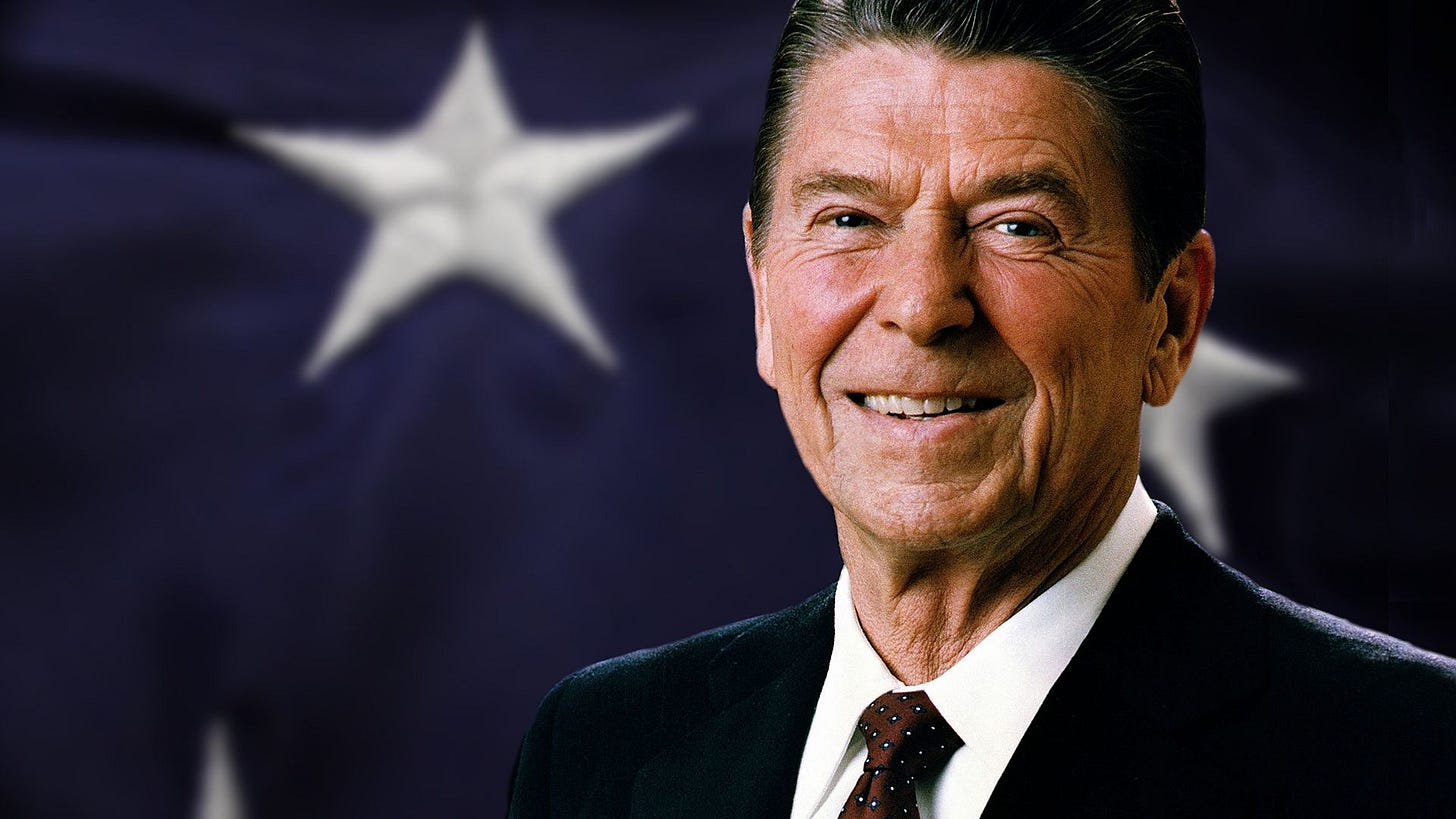The Big Tent Party
How the Big Tent is being misinterpreted and why Reagan would be rolling over in his grave over how today's party is being run!

Ronald Reagan, the 40th President of the United States, is widely recognized as one of the most significant figures in the history of the Republican Party. His "big tent" philosophy is often cited as a defining aspect of his legacy, and a key factor in the success of the party during his tenure. The idea behind the big tent philosophy was to build a coalition of voters who might not agree on every issue, but who shared a set of definitive core principles and values. Today, we have party leaders that believe that almost any unethical or un-republican activity is to be accepted under the mantra of the “big tent party.” Unfortunately, my Republican colleagues remember so much that isn’t so!
Origins of the Big Tent Philosophy
The origins of the big tent philosophy can be traced back to the 1976 Republican National Convention, where Ronald Reagan famously declared that "The person who agrees with you 80 percent of the time is a friend and an ally – not a 20 percent traitor." This statement reflected Reagan's belief that the Republican Party should be inclusive, welcoming of diverse viewpoints, and focused on building a broad-based coalition of voters. But that is to not be so accepting of every viewpoint that it crumbles the foundation of the party. There were new thinkers in the party that had not liked how corrupt and engineered the party had become - under Reagan the back door deals stopped because he painted uncompromising policy with bold colors - not with compromising pale pastels.
Reagan's big tent philosophy was a departure from the traditional approach of many Republicans, who had focused on narrow issues and sought to build a base of like-minded voters. Instead, Reagan sought to appeal to a wider range of Americans by emphasizing core conservative principles, such as limited government, individual freedom, and a strong national defense. He believed that by articulating these principles clearly and passionately, he could build a coalition that included traditional Republicans, independents, and even some Democrats. He tried to get the establishment Republicans to accept the new Republicans and tried to broker peace. When that did not work - he went over the establishment’s head and talked directly to the American people.
The Legacy of the Big Tent Philosophy
Reagan's big tent philosophy had a profound impact on the Republican Party, both during his presidency and in the decades that followed. By emphasizing the importance of inclusivity and broad-based appeal, he helped to create a party that was more welcoming to diverse viewpoints and more successful in winning elections. In other words - he helped to end the backdoor deals and embraced the conservative grassroots.
One of the key elements of Reagan's big tent philosophy was the party platform, which outlined the core principles and values that Republicans stood for. While there was certainly room for debate and discussion within the party on how to address issues, the platform provided a unifying framework that helped to keep the party focused on its core mission.
Today, the Republican Party continues to embrace the big tent philosophy, although there are certainly differences of opinion about how best to apply it. Some Republicans argue that the party needs to be more inclusive and welcoming of diverse viewpoints - so much so that very few Republican central committees define the principles of the party at the county or state level, while others, such as conservatives, believe that the party should stay focused on core conservative principles and values.
Conclusion
In conclusion, the big tent philosophy of Ronald Reagan was a defining aspect of his presidency and legacy. By producing an uncompromising Republican Standard that had broad-based appeal, and a focus on core conservative principles and values, he helped to build a very united Republican Party that was successful in winning elections and advancing its agenda. While there may be debate about the best way to apply the big tent philosophy today, there is no doubt that the big tent is taken out of context by many Republicans.
Sources:
"The Big Tent: Ronald Reagan's Republican Party" by Andrew E. Busch
"The Republican Party and the Big Tent" by William Kristol
"Ronald Reagan and the Transformation of American Politics" by Craig Shirley


